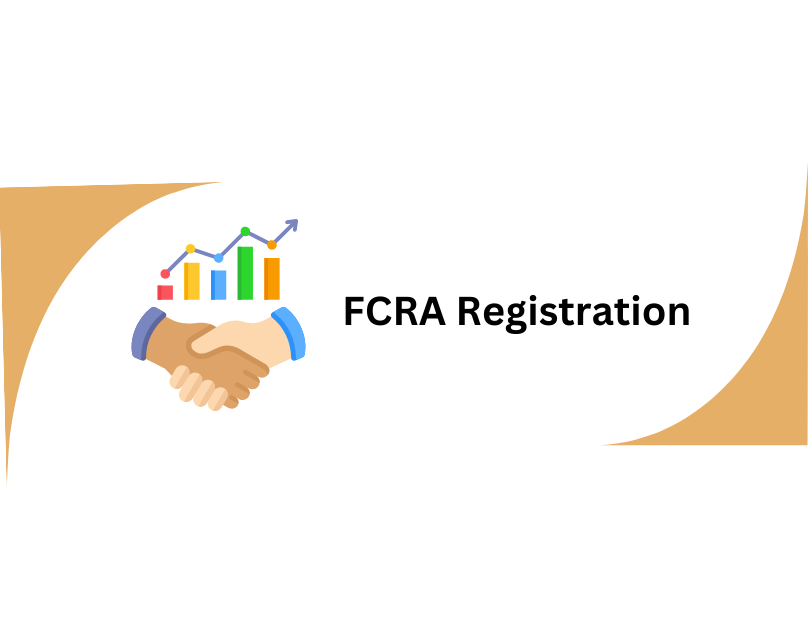FCRA Registration Process: Simplified Steps for Non-Profit Organizations
The Foreign Contribution (Regulation) Act, 2010 (FCRA) plays a pivotal role in regulating the receipt and utilization of foreign contributions by non-profit organizations in India. FCRA registration is mandatory for non-profits seeking to access foreign funds, confirming compliance with legal requirements and promoting transparency. This article provides a broad, step-by-step guide to help non-profits direct the FCRA registration process effectively.
What is FCRA Registration?
FCRA registration is a legal requirement for non-profit organizations in India that intend to receive foreign contributions. These funds must be used for permissible activities such as education, healthcare, social welfare, or cultural promotion. Registration makes certain that foreign funds are utilized responsibly and in alignment with Indian regulations.
Step 1: Understand Eligibility Conditions
Before applying for FCRA registration, organizations must meet specific eligibility conditions:
- Operational History
- The organization must have been operational for at least three years.
- It should have undertaken activities aligned with its objectives during this period.
- Minimum Expenditure
- The organization should have spent at least ₹15,00,000 on its core activities benefitting society over the last three years.
- These expenditures must be supported by audited financial statements.
- Defined Objectives
- The organization’s objectives must align with permissible activities under FCRA, such as rural development, environmental conservation, education, or healthcare.
- Separate Bank Account
- A designated FCRA bank account must be opened with the State Bank of India (SBI), New Delhi, as mandated by the FCRA amendment of 2020.
Step 2: Gather Necessary Documentation
Non-profits must prepare the following documents before starting the application process:
- Organizational Details
- Registration certificate or trust deed.
- Memorandum of Association (MOA) or Articles of Association (AOA).
- Financial Records
- Audited financial statements for the last three years, showing compliance with the ₹15,00,000 expenditure criterion.
- Reports detailing activities undertaken during this period.
- Bank Account Details
- Proof of the FCRA-designated SBI account.
- Key Personnel Information
- Identity and address proofs for the organization’s office-bearers and key functionaries.
- A declaration confirming that none of the key personnel have been convicted or prosecuted for any legal violations.
- Donor Details (for Prior Permission Applications)
- Commitment letters from foreign donors specifying the purpose and amount of the contribution.
Step 3: Register on the FCRA Portal
- Create an Account
- Visit the FCRA Online Services portal and create a user ID for your organization.
- Choose Application Type
- Regular Registration: For organizations that meet the three-year operational requirement.
- Prior Permission: For newly established organizations or those seeking specific donor contributions for defined purposes.
- Complete the Application Form
- Fill out the required details about the organization, including its activities, key personnel, bank account, and intended use of foreign funds.
- Upload Required Documents
- Attach all the necessary documents in PDF format, make sure accuracy and legibility.
Step 4: Pay the Application Fee and Submit
- Application Fee
- Pay the prescribed fee online: ₹10,000 for regular registration and ₹5,000 for prior permission.
- Submission
- Double-check the application and uploaded documents for accuracy.
- Submit the application online and save the acknowledgment receipt for tracking purposes.
Step 5: Verification and Approval Process
- Initial Scrutiny by the Ministry of Home Affairs (MHA)
- The MHA reviews the application and supporting documents for completeness and adherence to eligibility reasons.
- Field Verification
- Local authorities may conduct a field inspection to verify the organization’s activities, infrastructure, and compliance records.
- Guarantee that all records and facilities are well-organized and accessible during the inspection.
- Approval or Rejection
- If all measures are met, the MHA grants FCRA registration.
- In case of rejection, the reasons will be communicated, and the organization can reapply after addressing the issues.
Step 6: Post-Registration Compliance
Once registered, non-profits must adhere to several compliance requirements to maintain their FCRA status:
- Annual Returns
- File annual returns (Form FC-4) by December 31 of the following financial year, detailing the receipt and utilization of foreign contributions.
- Include sources of funds, amounts received, and their utilization.
- Utilization Norms
- Foreign funds must only be used for the purposes specified during registration.
- Funds cannot be used for speculative investments, political activities, or any actions detrimental to public interest.
- Record Maintenance
- Maintain detailed records of foreign contributions, including donor details, amounts, and utilization.
- Retain records for at least six years for audit and inspection purposes.
- Renewal of Registration
- FCRA registration is valid for five years and must be renewed before expiry.
- The renewal process involves submitting updated financial statements and compliance reports.
Common Challenges in FCRA Registration
- Documentation Errors
- Missing or inaccurate information can result in delays or rejection of the application.
- Confirm all documents are complete and consistent with the application.
- Field Verification Delays
- Delays in inspections or incomplete records during verification can stall the approval process.
- Prepare thoroughly and follow up with the authorities to expedite the process.
- Regulatory Amendments
- Changes in FCRA regulations, such as the 2020 amendment requiring SBI accounts, often catch organizations off guard.
- Stay updated on legal changes and adapt processes accordingly.
- Compliance Challenges
- Non-compliance with filing deadlines or utilization norms can result in penalties or suspension of registration.
- Establish internal processes to confirm timely compliance with all FCRA requirements.
Best Practices for Successful Registration and Compliance
- Proactive Documentation
- Maintain detailed and accurate records of activities, financial transactions, and donor communications.
- Regularly update documents to reflect any changes in organizational structure or objectives.
- Compliance Monitoring
- Designate a compliance officer or team to oversee FCRA-related activities, including filing returns and maintaining records.
- Legal and Financial Expertise
- Engage professional advisors to traverse the application process and confirm adherence to regulations.
- Conduct regular audits to identify and address compliance gaps.
- Transparency with Donors
- Share impact reports and financial statements with donors to build trust and foster long-term partnerships.
Decision
FCRA registration is a important step for non-profits in India seeking to receive foreign contributions. While the process involves detailed documentation and compliance requirements, a systematic approach warrants successful registration and access to international funding. By adhering to the outlined steps, maintaining transparency, and staying informed about regulatory changes, non-profits can unlock the potential of foreign contributions to amplify their social impact and drive meaningful change.

